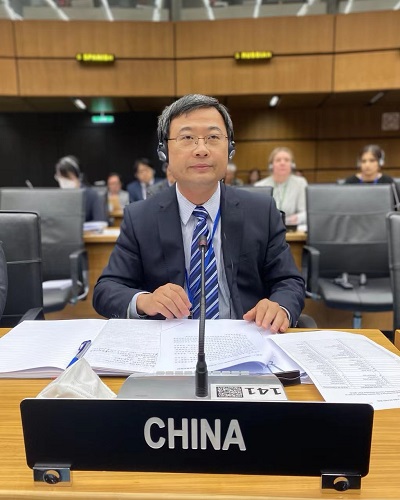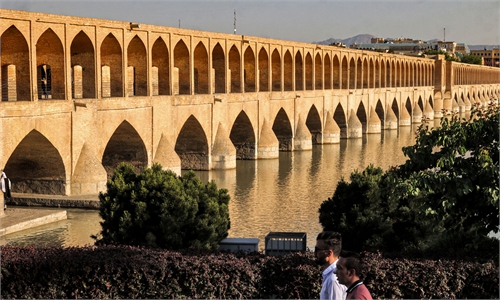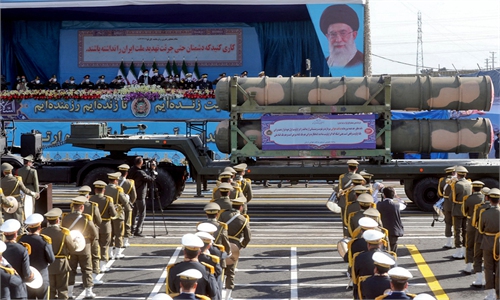US should stop pressuring Iran but start responding to Iran's legitimate concerns: Chinese envoy

Wang Chang, deputy head of China's Permanent Mission to the United Nations in Vienna speaks at the International Atomic Energy Agency (IAEA) board meeting on June 8, 2022, explaining his voting against the resolution. Photo: Permanent Mission of the People's Republic of China to the United Nations and other International Organizations in Vienna
The US, initiator of the current Iran nuclear crisis, should actively respond to Iran’s legitimate concerns instead of keeping up its pressure campaign against Iran, said a Chinese envoy to the United Nations, after voting against a resolution passed by the International Atomic Energy Agency (IAEA) board meeting to censure Iran.
China is opposed to countries putting pressure on Iran through the resolution, as the pressure campaign will not help solve problems, but will instead intensify tensions and escalate the situation, said Wang Chang, deputy head of China's Permanent Mission to the United Nations in Vienna on Wednesday, explaining his voting against the resolution.
During the IAEA board meeting, the US, UK, France and Germany proposed a resolution to criticize Iran for its nuclear safeguarding issues, which was passed among the UN nuclear watchdog’s 35-nation Board of Governors.
Explaining his vote, Chinese envoy Wang Chang said that such a confrontational move at the IAEA board meeting will only compromise the Iran-IAEA cooperation and undermine the negotiations on reviving the 2015 Iran nuclear deal, which is in the final critical stage.
Wang noted that the US, as the initiator of the current Iran nuclear crisis, should make political decisions as soon as possible and actively respond to Iran's legitimate concerns to push for an early deal in the nuclear talks.
China supports the IAEA and Iran in resolving their disagreements on safeguarding issues through dialogue and cooperation, he said. “All relevant parties should create the necessary conditions and a sound atmosphere for diplomatic efforts.”
"The pressing task now is to conclude the Iran nuclear talks and bring the JCPOA back on track as soon as possible," Wang said. "We believe all of Iran's safeguarding issues will be solved by then."
Talks in Vienna over restoring the Iran nuclear deal, formally known as the Joint Comprehensive Plan of Action (JCPOA), have stalled in recent months, for this the Iran Foreign Ministry holds the US responsible.
China and Russia voted against the text while three countries – India, Libya and Pakistan – abstained, according to Russian envoy Mikhail Ulyanov.
“Countries which represent more than 1/2 of mankind didn’t support the resolution,” he wrote in a tweet on Wednesday.
Global Times


